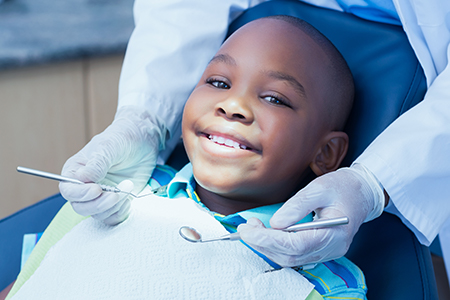Pediatric Dental Emergencies: What Parents Required to Know for Quick and Effective Therapy
In the realm of pediatric medical care, dental emergency situations can occur unexpectedly, leaving parents unclear of how to manage the circumstance properly. By being prepared and notified, parents can play a vital function in safeguarding their youngster's oral wellness.
Signs of Pediatric Dental Emergencies
When examining pediatric oral emergency situations, it is vital for moms and dads to be watchful for specific indications showing potential major concerns. One of the primary indicators of an oral emergency in children is consistent tooth pain that is not eased by over the counter discomfort medications.

Common Types of Dental Injuries
Typical sorts of dental injuries in youngsters commonly result from crashes or sports-related activities that can bring about various kinds of injury to the mouth and teeth. One usual oral injury is a broken tooth, which can range from a small chip to a much more serious break including the internal layers of the tooth. Another regular injury is a knocked-out tooth, where immediate action is crucial to boost the possibilities of conserving the tooth. Kids might additionally experience oral injuries like tooth intrusion, where the tooth is pressed right into the jawbone, or avulsion, which is the full variation of a tooth from its socket. Furthermore, oral injuries can include luxation, where the tooth is dislodged but not entirely knocked senseless, or soft cells injuries to the gums, lips, or tongue. It is necessary for moms and dads to be knowledgeable about these typical kinds of dental injuries to give prompt and ideal care in instance of emergencies.
Immediate First Help Steps
Upon running into a pediatric dental emergency, swift and suitable emergency treatment procedures are important to relieve discomfort and avoid additional issues. For a knocked-out tooth, instruct the kid to delicately rinse the tooth with water, attempting not to touch the root, and area it back in the socket if feasible. If re-implantation is not possible, save the tooth in a container of milk or the child's saliva until getting to the dental expert. In cases of a broken or chipped tooth, wash the mouth with warm water and use a chilly compress to minimize swelling. A bitten lip or tongue ought to be cleansed gently with water, and a cool compress can help reduce discomfort and minimize swelling. For objects stuck in between teeth, stay clear of utilizing sharp devices and rather urge the child to delicately floss to Look At This displace the product. In all instances, it is important to contact a pediatric dental professional immediately for more analysis and therapy.
When to Seek Specialist Assistance
Looking for punctual oral care from a pediatric professional is important in attending to prospective problems emerging from pediatric dental emergencies. Parents ought to seek specialist help promptly if their kid experiences extreme tooth discomfort, face swelling, bleeding that doesn't stop, a knocked-out irreversible tooth, or any type of trauma to the mouth or face. These indications suggest a severe oral problem that requires prompt interest from a pediatric dental practitioner.
Furthermore, if a kid experiences consistent tooth level of sensitivity to hot or chilly, problem chewing or ingesting, or signs of infection such as pus around the periodontals, parents must not delay in seeking specialist dental care. These symptoms can indicate underlying oral problems that require to be resolved immediately to stop more issues.
In instances of dental emergencies, it is essential for parents to speak to a pediatric dental expert immediately to make certain proper diagnosis and treatment - pediatric dentist near me. Delaying professional help can lead see page to exacerbated oral issues and prolonged discomfort for the kid

Protecting Against Future Dental Emergencies
To decrease the probability of future oral emergency situations, parents need to focus on constant dental hygiene techniques and routine brows through to a pediatric dentist for preventative treatment. Urging youngsters to brush their teeth two times a day with fluoride toothpaste and educating them the correct method for 2 minutes each time can significantly decrease the risk of dental problems.
Routine sees to a pediatric dental practitioner for check-ups and cleanings are essential for early detection of any kind of potential dental troubles. These appointments enable the dental practitioner to keep track of the kid's dental wellness, offer specialist cleanings to article source remove plaque and tartar buildup, apply fluoride therapies for added defense, and deal advice on correct oral care strategies.
Verdict
Finally, parents must understand the indications of pediatric dental emergencies, usual kinds of dental injuries, instant emergency treatment actions, and when to look for professional help. By taking positive steps to avoid future oral emergency situations, parents can guarantee quick and effective therapy for their youngsters. It is essential to stay educated and prepared in order to manage any type of oral emergency that may emerge.